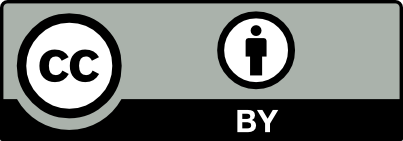Profile and challenges of the production and commercialization of processed organic foods in the state of Rio de Janeiro
DOI:
https://doi.org/10.22239/2317-269x.01977Keywords:
Organic Food, Participative Organic Quality Assurance System, Food Processing Quality, Sanitary Legislation, Productive InclusionAbstract
Introduction: Smallholder organic food processing contributes to an economically, socially and environmentally sustainable food system. It is important to know the profile and potential difficulties of organic food processors, organized under the modality of the Participatory Organic Quality Assurance System, due to its growth and social relevance for targeting actions and public policies with the consequent strengthening of
agriculture with an agroecological basis. Objective: Describe the profile of organic food processors in Rio de Janeiro state and identify the main challenges in the production and commercialization schemes. Method: This is an exploratory and descriptive study with transversal design developed by documental research of different documents: handling plans, good practices manual, minutes of the Participatory Organic Quality Assurance System, certificates issued by the Association of Biological Farmers of the State of Rio de Janeiro, and other updated documents of the Participative Organism of Organic Conformity
Assessment related to the accredited producers. Results: Sixty per cent of the organic processors in the Rio de Janeiro state were linked to the Participatory Organic Quality Assurance System. The processing unit mostly used is the one attached to their homes. Most of them are farmers or family micro-entrepreneurs that have assistance of family members in the production process and the main
activity carried out is the production of canned foods, jams, sauces, and homemade desserts. Less than 70% of the producers had an operation permit and sanitary license, 97% had an Organic Handling Plan; 79% had a Good Practices Manual and 78% had a Traceability Plan. Among the main difficulties, there were: raw resource acquisition, sanitary rules adequacy and logistics in supplies. Conclusions:
The study demonstrated the potentiality of organic products processing for the local social and economic development, and the need of greater inducements to make an inclusive production of small enterprises feasible.
Downloads
Downloads
Published
Issue
Section
License
Copyright (c) 2022 Health Surveillance under Debate: Society, Science & Technology (Vigilância Sanitária em Debate: Sociedade, Ciência & Tecnología) – “Visa em Debate”

This work is licensed under a Creative Commons Attribution-NonCommercial 4.0 International License.
COPYRIGHT ALLOWANCE The author (s) hereinafter designated as the ASSIGNOR hereby assign and transfer, free of charge, the ownership of the copyrights related to this ARTICLE to the Vigilância Sanitária em Debate: Sociedade, Ciência & Tecnologia (Health Surveillance under Debate: Society, Science & Technology) – Visa em Debate, represented by FUNDAÇÃO OSWALDO CRUZ, established at Av. Brasil, nº 4365, Manguinhos, Rio de Janeiro, RJ, Brazil, CEP 21045-900, under the conditions set out below: (a) The terms and conditions set forth in this Agreement shall apply to the following: 1. The ASSIGNOR declares that they s(he) is (are) the author (s) and owner (s) of the copyrighted property of the ARTICLE submitted. 2. The ASSIGNOR declares that the ARTICLE does not infringe the copyrights and / or other property rights of third parties, that the disclosure of images (if any) has been authorized and that they s(he) assume(s) full moral and / or property liability for its content, before third parties. 3. THE ASSIGNOR assigns and transfers all copyrights relating to the ARTICLE to the ASSIGNEE, especially the rights of editing, publication, translation into another language and reproduction by any process or technique. The ASSIGNEE becomes the exclusive owner of the rights related to the ARTICLE, and any reproduction, totally or partially, is prohibited in any other means of publicity, printed or electronic, without prior written authorization from the ASSIGNEE. 4. The assignment is free and, therefore, there will be no remuneration for the use of the ARTICLE by the ASSIGNEE.







